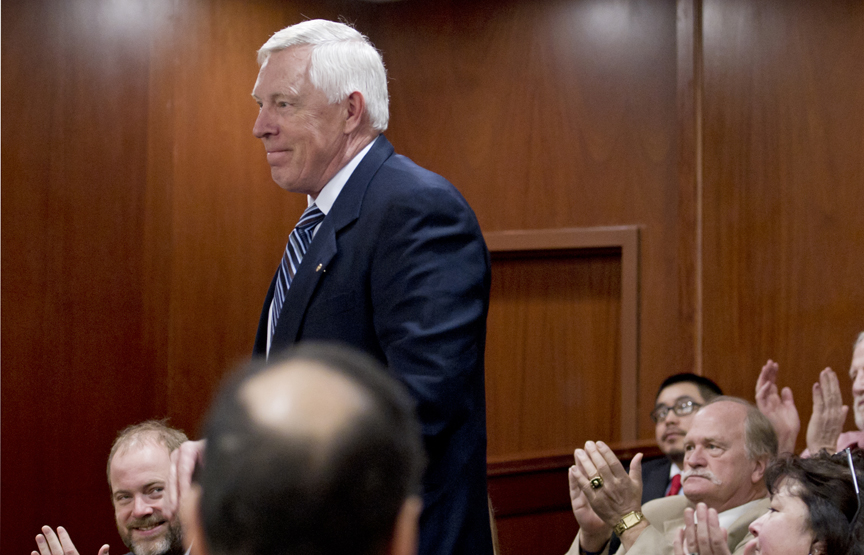ANCHORAGE — The U.S. Supreme Court on Tuesday overturned a National Park Service ban on the use of hovercraft by a moose hunter within a national preserve in Alaska, but in a narrowly focused ruling, sent the case back to a lower court for additional consideration.
The justices unanimously ruled that the 9th Circuit Court of Appeals erred in interpreting federal law. However, they did not rule on whether the Park Service can regulate hovercraft use, or whether the agency has regulatory authority over a river within that preserve for which the state claims ownership. Justices ruled that such state sovereignty issues should be first argued in lower courts.
Alaska Gov. Bill Walker at a news conference called the decision “a step in the right direction” toward asserting control over state-owned rivers and other lands in dispute with federal agencies.
“It’s a long way from over but I’d rather be where we are today than where we were yesterday,” Walker said.
The ruling came in the case of John Sturgeon of Anchorage, a moose hunter who in 2007 was ordered off the Nation River within the Yukon-Charley Rivers National Preserve in northeast Alaska. Sturgeon had used hovercraft since 1990, but while stopped on a gravel bar to make a repair, was told by three rangers that it was illegal to operate the noisy craft that can navigate shallow water or even mud.
Sturgeon sued in 2011. Alaska also sued, hoping for a ruling that could limit the federal government’s authority over state-owned, navigable waters in national parks. The Park Service had denied the state a permit to use a helicopter to conduct salmon research on state land, a gravel bar, on the Alagnak River within Katmai National Preserve.
The case focused on interpretations of Alaska National Interest Lands Conservation Act, which created or expanded 19 conservation units, including Yukon-Charley Rivers National Preserve.
One provision of the law specifies that no state or private parties within the conservation units shall be subject to regulations applicable only to federal land in the conservation unit.
In the 8-0 decision Tuesday, Supreme Court justices rejected the 9th Circuit Court’s ruling that the Park Service could apply national regulations on hovercraft to state and private land within the conservation unit but not the Alaska-specific exceptions that apply to federal land within the unit. Roberts called that a “topsy-turvy” approach.
The law carves out numerous Alaska-specific exceptions to the Park Service’s general authority over federally managed preserves, such as snowmobile and airplane travel between villages, he noted.
The Supreme Court did not decide whether the Park Service has authority to regulate Sturgeon’s hovercraft on the river or whether the river was federal public land for regulatory purposes.
“We leave those arguments to the lower courts for consideration,” Roberts wrote.
Trustees for Alaska, an environmental law firm that filed a friend-of-the-court brief in the case on behalf of 13 conservation groups, said there are centuries of law supporting federal authority over navigable waters and other public lands.
“We are optimistic that the Ninth Circuit will clarify the Park Service’s authority over navigable waters so that Alaska’s national parks are protected as Congress intended,” said attorney Katie Strong.

